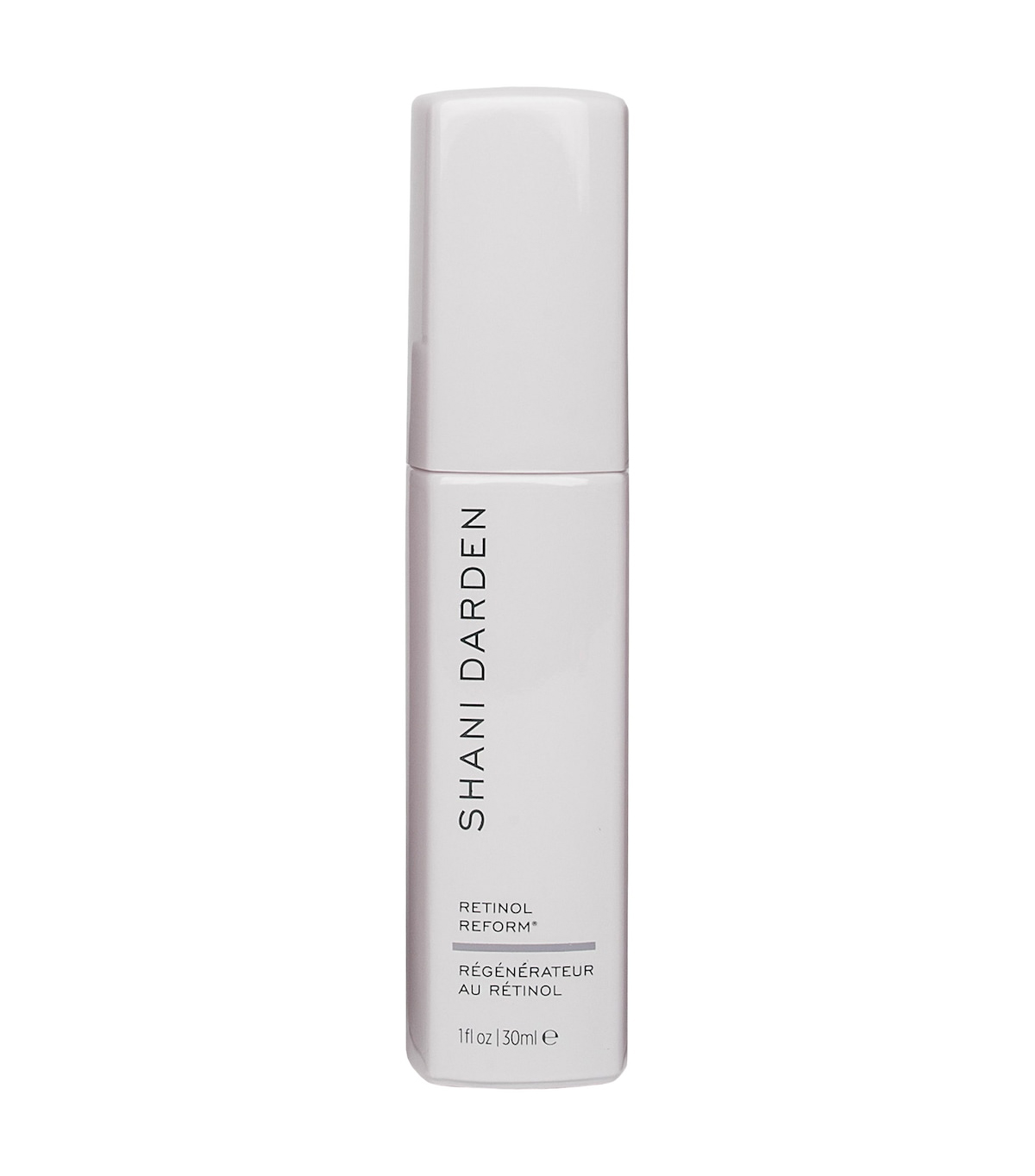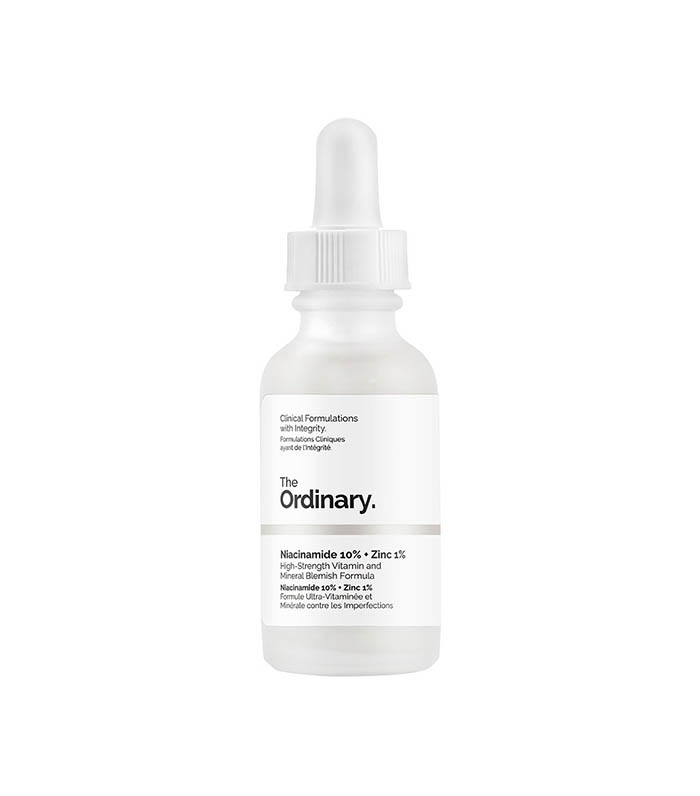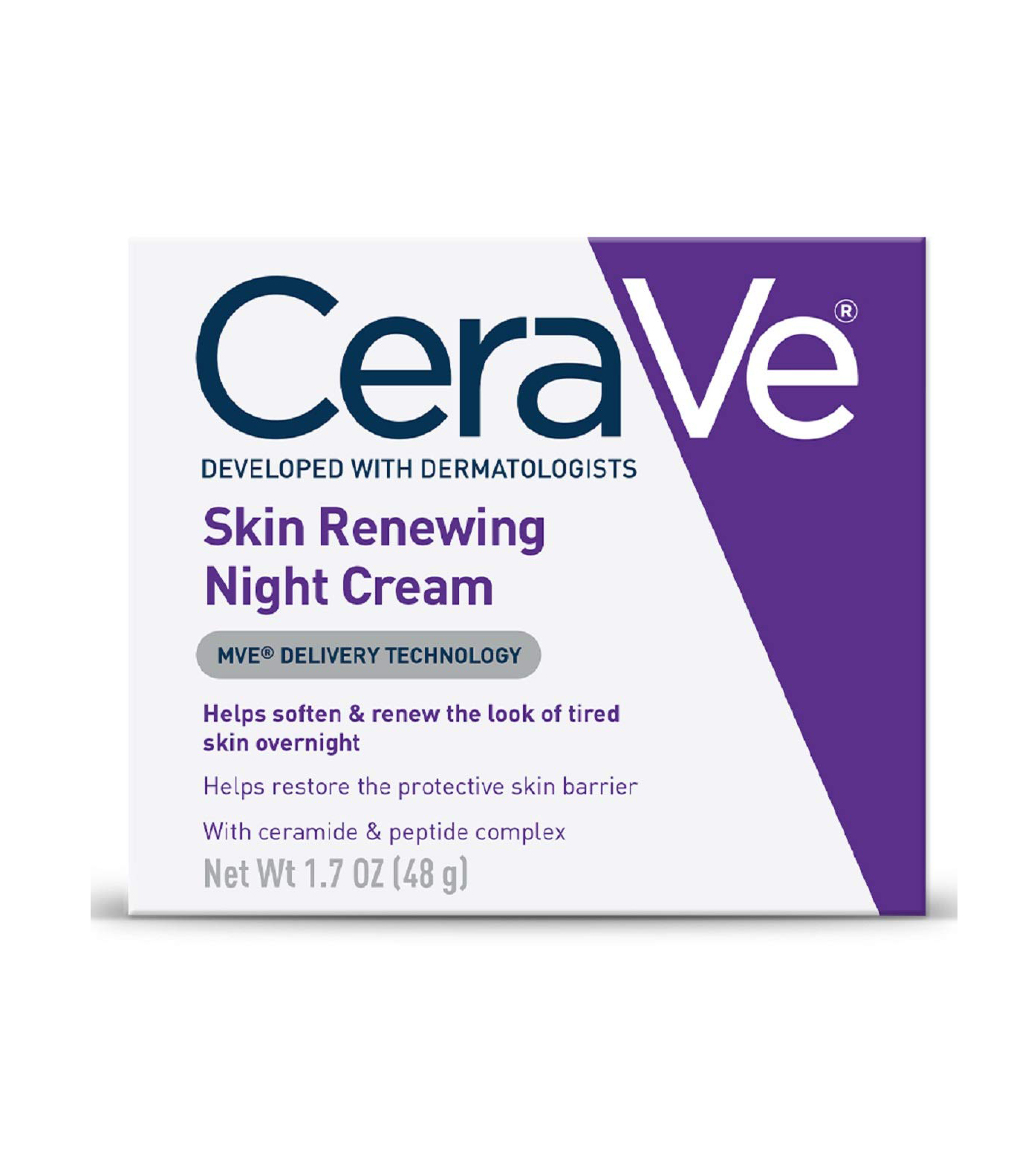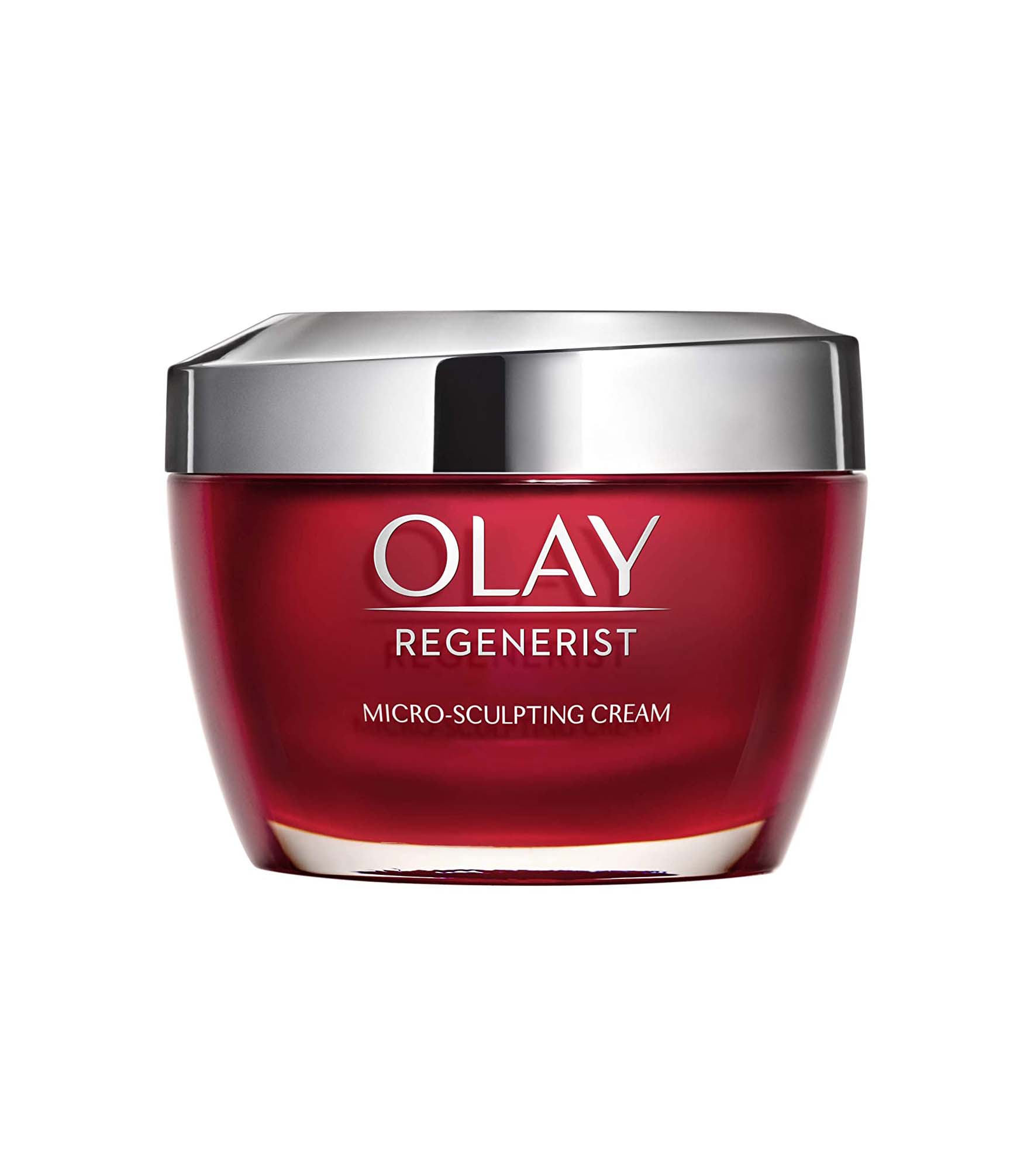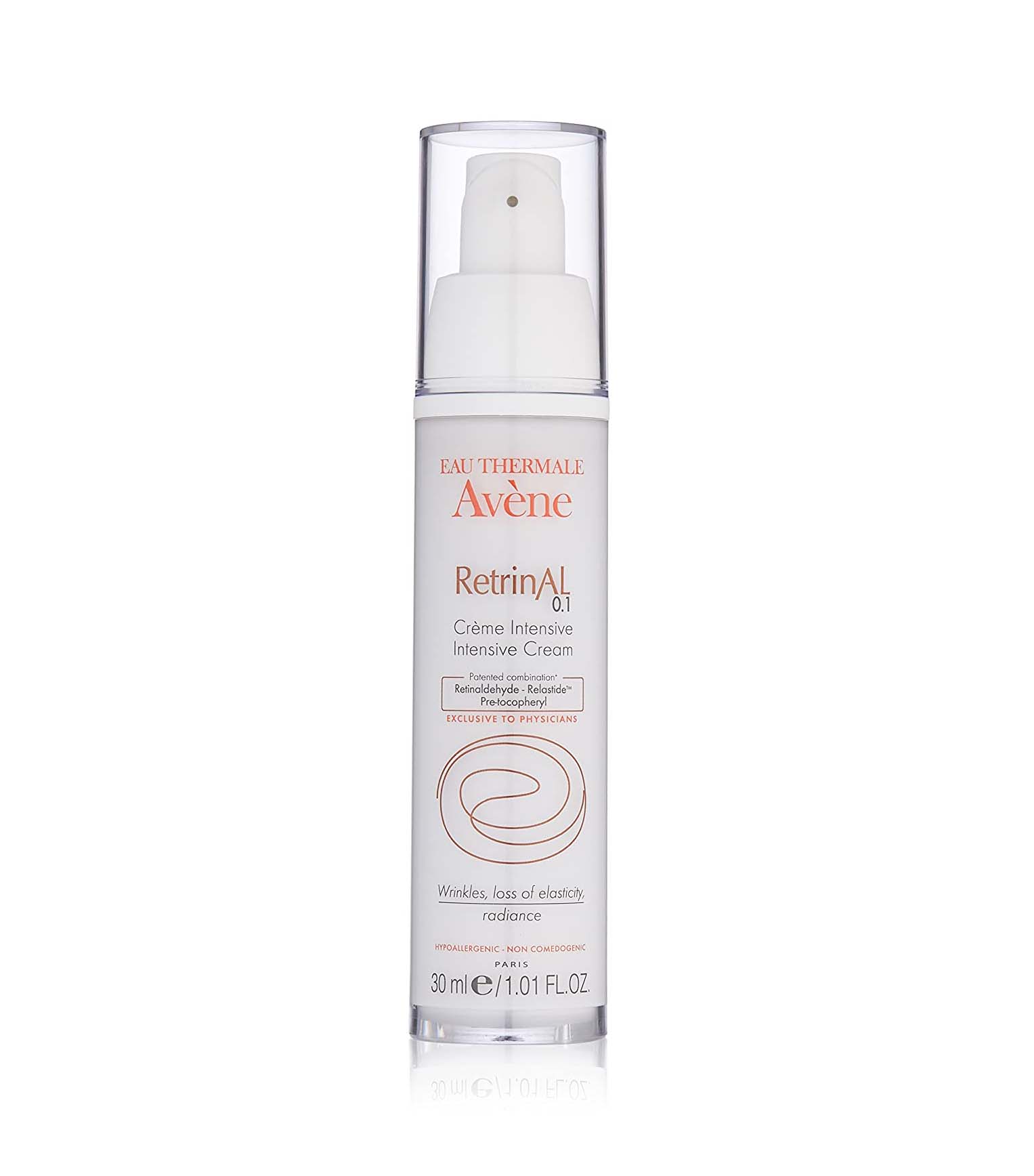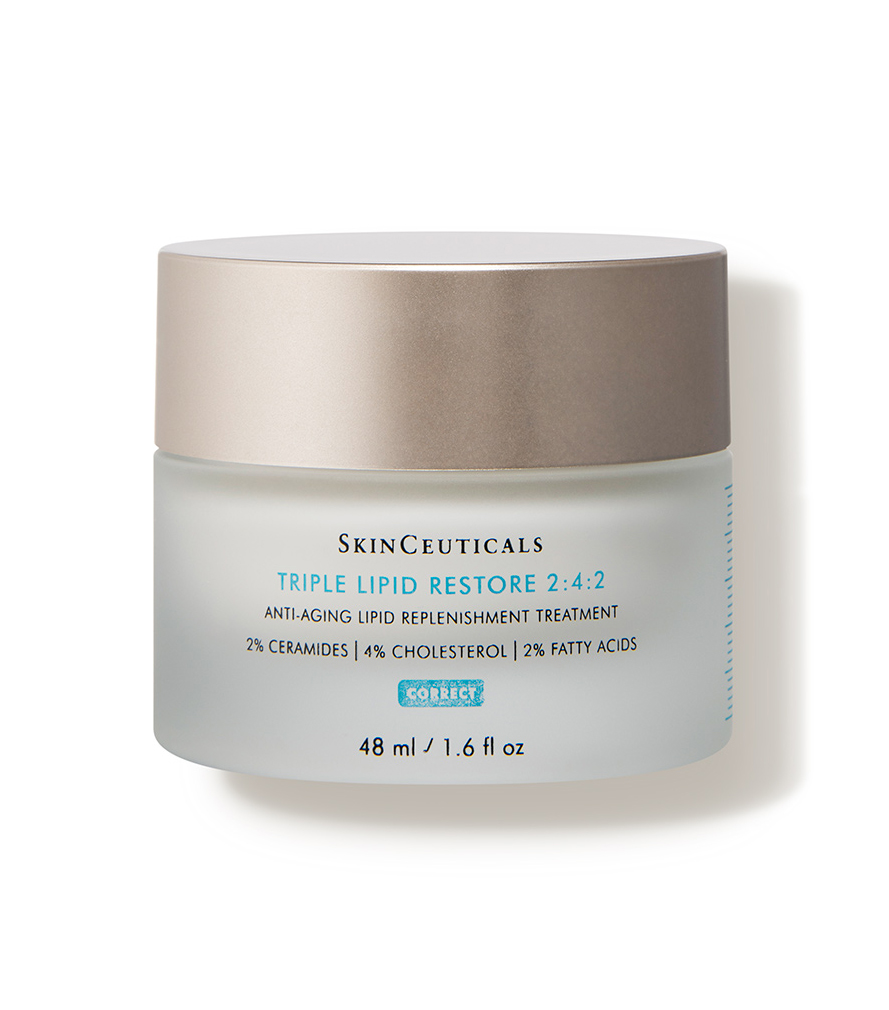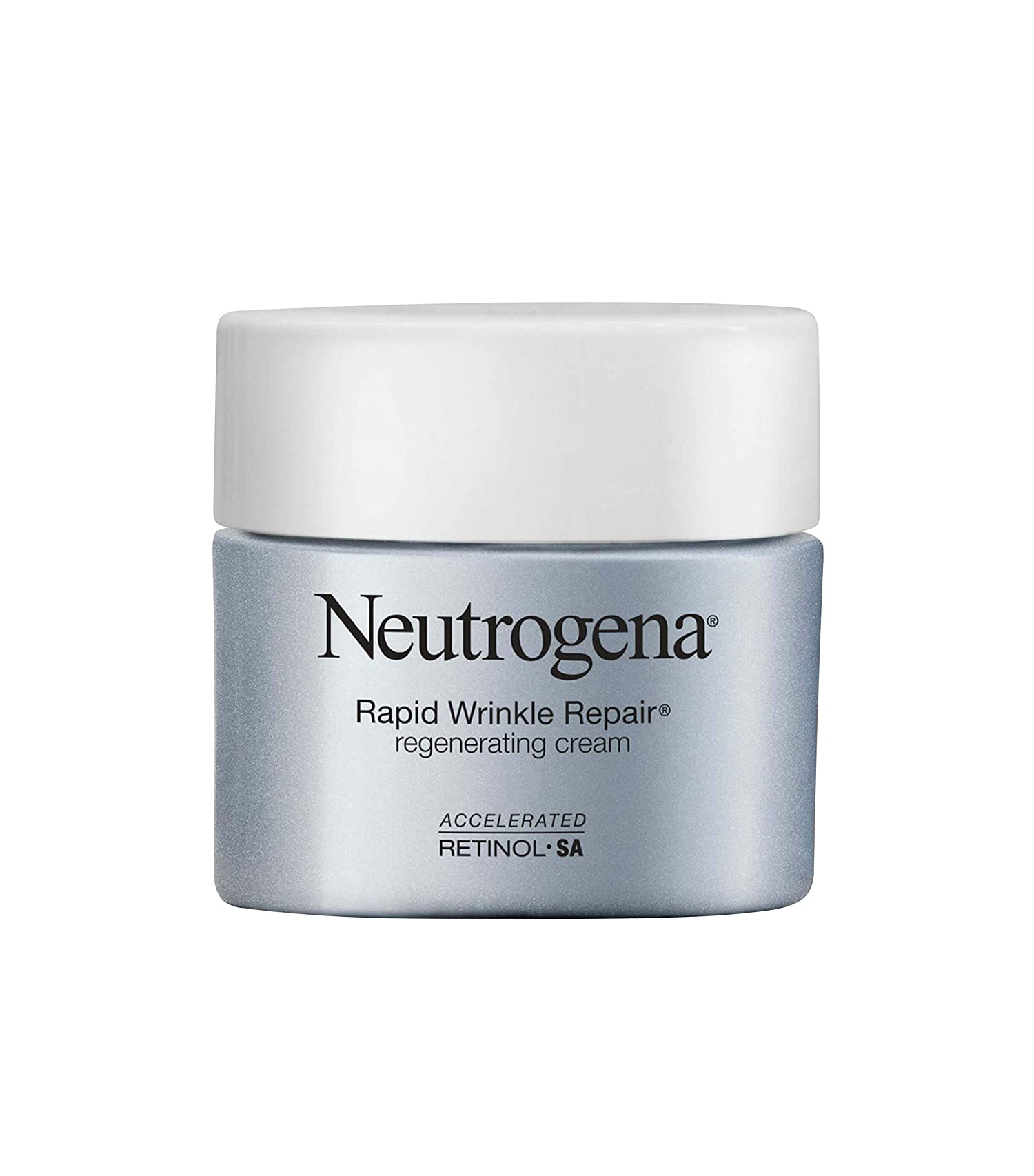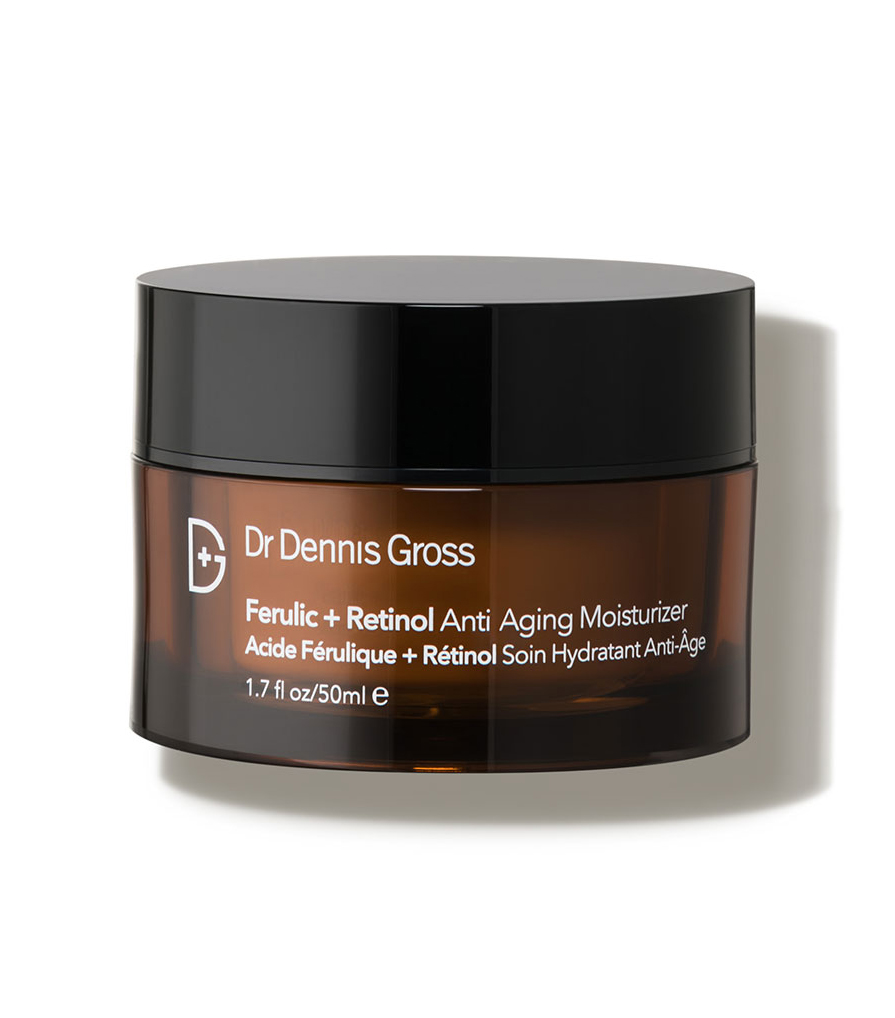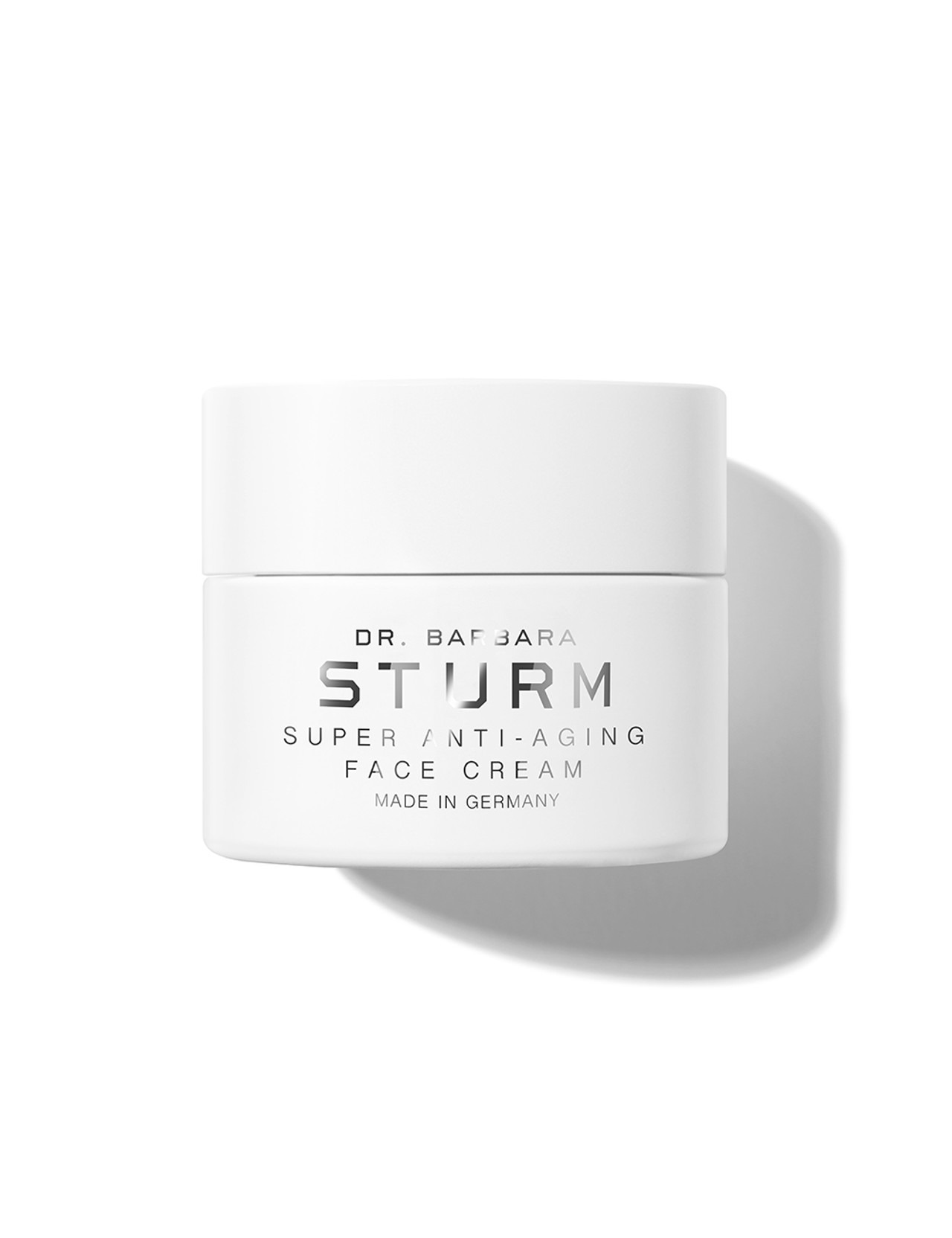The Face Creams That Just Might Get You Carded Again, According to Derms
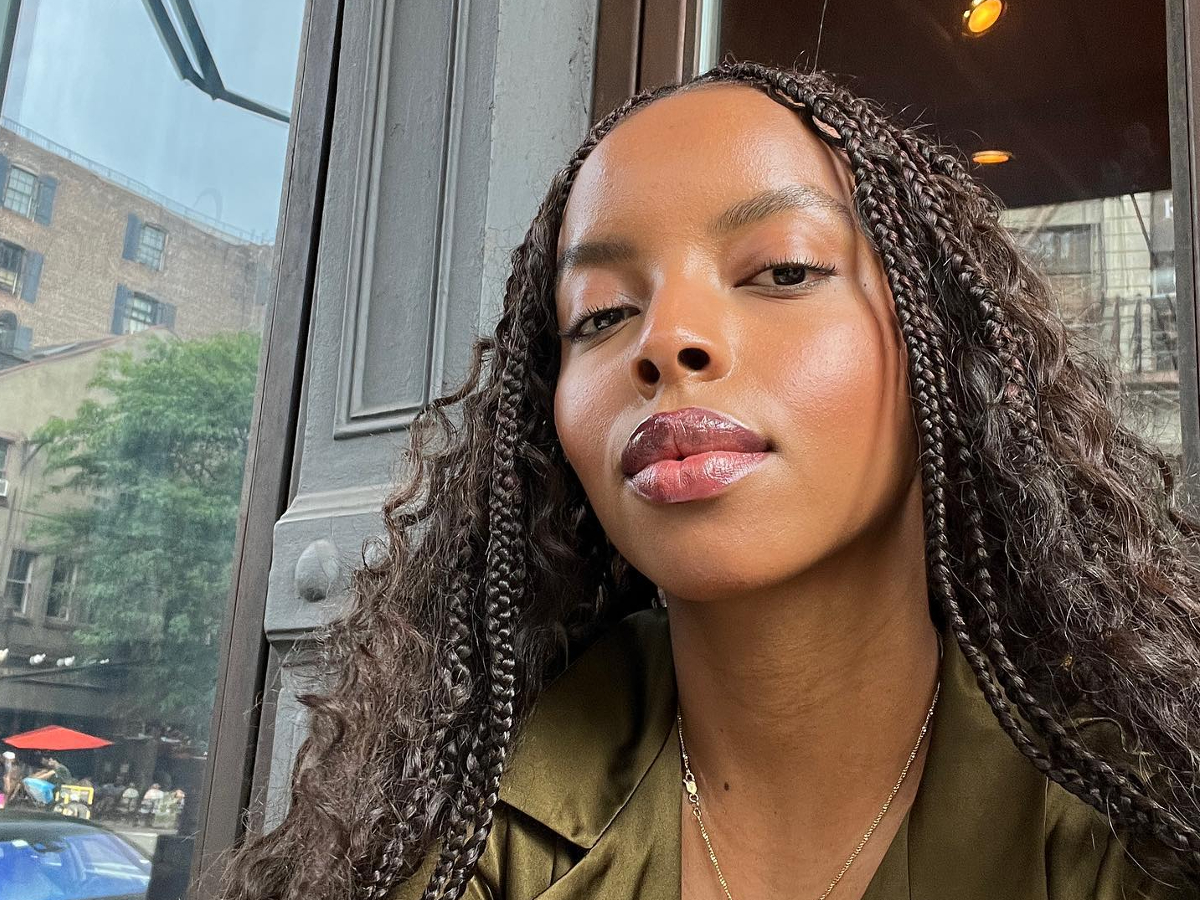
There are so many skincare products that have anti-aging benefits, or at least claim that they do. They promise to lift your skin, smooth wrinkles, and erase blemishes, and some even say you'll look years younger after applying. It sounds part magic, part scam, but a lot of us want to believe that because we'd do anything to keep our skin preserved in time.
I'm not saying all of these products don't work—some actually do and are worth it. But there are so many out there that cost so much money and leave a lot of unanswered questions. Will it work on my specific skin type? Does it really do what it says? Is it a total waste?
The trick to not being tricked is to do your research. Since the most common anti-aging product people use in their skincare routines is likely a cream, I went to expert dermatologists to get their advice on how to choose one, what to be wary of, and their own brand recommendations.
What Should Your Anti-Aging Cream Do?

It's a tall order for any one product, but youth-enhancing creams can address an array of concerns. Marisa Garshick, MD, a board-certified dermatologist at MDCS Dermatology, says, "Some skin concerns that an anti-aging cream can address include fine lines, wrinkles, dark spots, discoloration, dryness, dullness, skin sagging or laxity, and overall texture and tone." Robyn Gmyrek, MD, a board-certified dermatologist at Park View Laser Dermatology, also says there are a few things your youth-enhancing cream should target:
Stimulate new collagen and elastic tissue: Gmyrek says that as we age, the production of collagen and elastin decreases, which can lead to fine lines, wrinkles, and texture changes.
Exfoliate the dead skin layer: "In older skin, the top dead skin layer does not slough off as it did in youth, leading to a dry, dull appearance," Gmyrek explains. "Exfoliating products help to brighten the skin, and removing the dead skin cells helps penetration of other active ingredients in the creams."
Decrease excess and unwanted pigmentation: Sun exposure could lead to excess pigmentation, so a product will ideally rejuvenate the skin by removing unwanted pigmentation.
Prevent ongoing and further damage and aging: "If we are trying to reverse damage, we also have to stop ongoing damage and give our skin a chance to repair and make progress," Gmyrek says. Some products and ingredients that help with this include antioxidants, vitamin C, SPF 30 or higher (to prevent UVB damage), broad-spectrum sunscreen (to prevent UVA damage), and tinted makeup or sunscreen with iron oxide to prevent blue light damage.
Ingredients Your Anti-Aging Cream Should Include
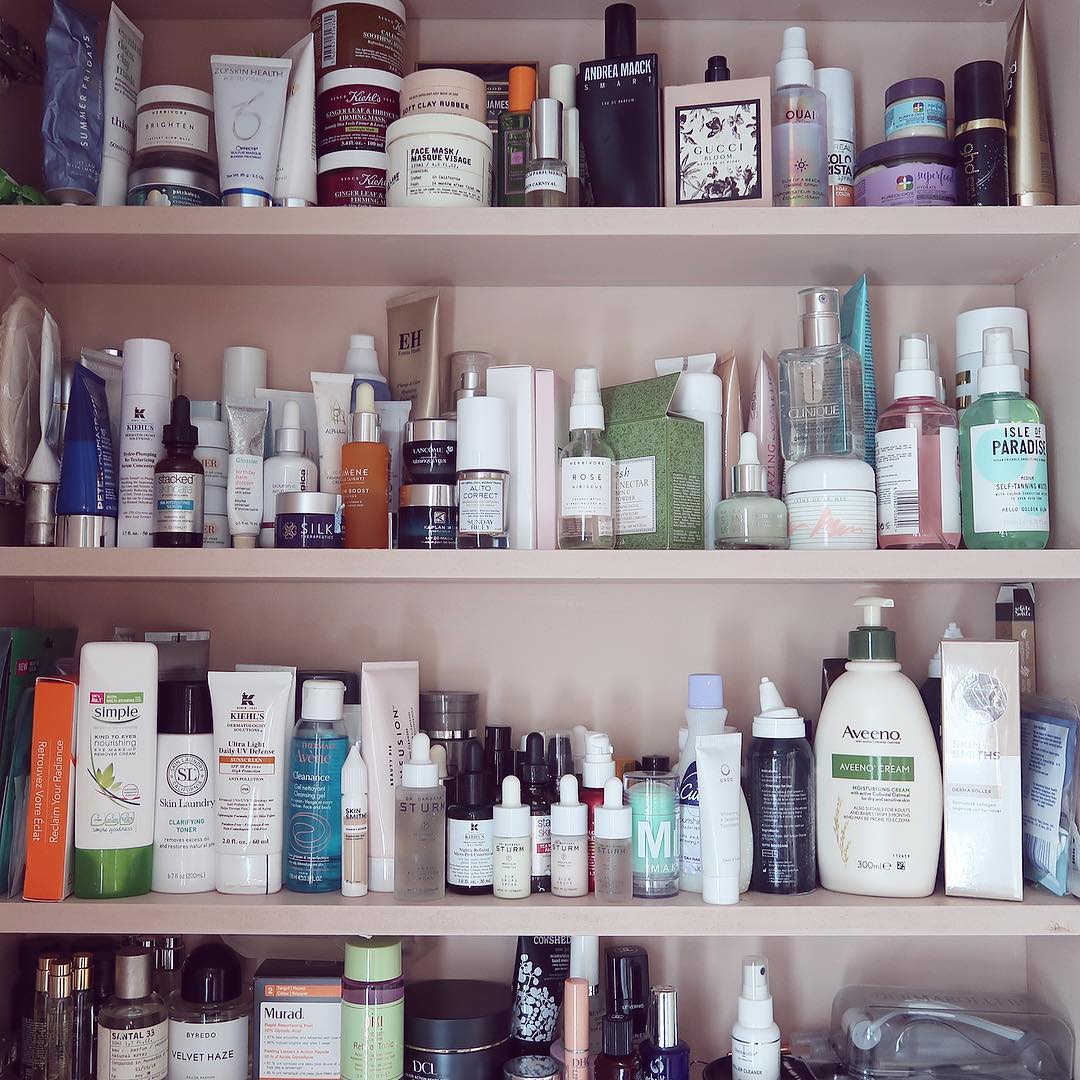
When shopping for creams and other products, there are specific ingredients to keep an eye out for, depending on what your skincare needs are. Just remember that on the label, the ingredients listed first are the most predominant in the product. According to derms, the most common ones you'll need are the following:
Hyaluronic Acid and Ceramides: Board-certified dermatologist Brooke Jackson, MD, says dry skin comes with age and hormonal shifts/menopause. She suggests looking for moisturizing ingredients like hyaluronic acid, which attracts and holds moisture, and ceramides, which repair the skin barrier.
Retinoids: These vitamin A derivatives reduce collagen breakdown and stimulate collagen synthesis. "It is available as a retinol (over the counter), tretinoin (prescription), adapalene (over the counter), and tazarotene (prescription)," Gmyrek says. "Always use these products at nighttime, as retinoids and retinols are inactivated by ultraviolet light."
Board-certified dermatologist Roberta Del Campo, MD, says retinoid strength should be matched to your skin type. Oily skin needs a stronger version, while dry skin needs a milder, less concentrated option.
Bakuchiol: "Bakuchiol is a naturally derived plant compound that is not a vitamin A but acts on the retinoid receptors in the same way as the retinols," Gmyrek explains. "It has been shown to be less irritating." This ingredient is good for people with dry or sensitive skin.
Vitamins C and E: Because you might experience discoloration from sun exposure and hormonal shifts, Jackson says vitamins C and E can help. They can brighten the skin and help to repair damage.
Peptides: "They are short chains of amino acids that serve as building blocks for proteins needed by the skin, like collagen, elastin, and keratin," Gmyrek explains. "Peptides are essentially fragmented portions of complete or whole proteins. When applied topically to the skin, peptides act as little messengers, triggering skin cells to perform specific functions such as building collagen and elastin, reducing inflammation, and locking in skin hydration."
Niacinamide: Also called nicotinamide, it's a form of vitamin B3, which is an antioxidant and collagen stimulator. Gmyrek says niacinamide increases collagen production and decreases the cross-linking of collagen, which makes it hard and rigid. It can help improve fine lines and wrinkles.
Other antioxidants: Antioxidants like polyphenols, ferulic acid, and ubiquinone (coenzyme Q10) work to protect the skin against free radicals.
Check out a few products with these ingredients below.
Choosing the Right Anti-Aging Cream for Your Skin Type
There are a few things derms say you should keep in mind when choosing the right youth-enhancing cream for your specific skin type. Garshick says, "Those who are oily may want to avoid heavy oils, as these can clog pores, but can consider retinoids or exfoliating acids like salicylic acid, which can help to reduce the appearance of oil and unclog pores. Those with dry skin, on the other hand, may want to be cautious when incorporating exfoliating ingredients or retinoids into a routine, but may consider using products containing hyaluronic acid or ceramides.
"Those who are acne-prone should look for products that are noncomedogenic and won't clog the pores and consider ingredients like retinoids and salicylic acid, which can help to address breakouts. Those those with sensitive skin should be cautious when considering retinoids or exfoliating products and may opt for other ingredients like bakuchiol or peptides."
Jackson also adds that post-menopausal skin is drier and needs more moisture, so you'll want to choose hydrating products. Those with dry skin should also opt for bakuchiol instead of retinols, a cream with peptide complexes, or niacinamide to promote collagen. Other hydrating and nourishing ingredients include ceramides, glycerin, hyaluronic acid, and dimethicone—these repair the skin barrier, too.
For oily skin, Gmyrek cautions that some antioxidants are oils (like vitamin E oil), which can occlude pores and cause breakouts. Look for oil-free products and prioritize serums and lotions over creams.
And if you have sensitive skin, Jackson also recommends avoiding products with fragrance. When first using a product, apply in small amounts to limited areas of the face to gauge sensitivity. Dry and sensitive skin types will want to opt for cream-based products, which can help your skin's moisture barrier, which can sometimes be disrupted by anti-aging ingredients like retinol, says board-certified dermatologist Joyce Imahiyerobo-Ip, MD, FAAD, owner of Vibrant Dermatology and Skin Bar MD in the greater Boston area.
Anti-Aging Cream Application Tips
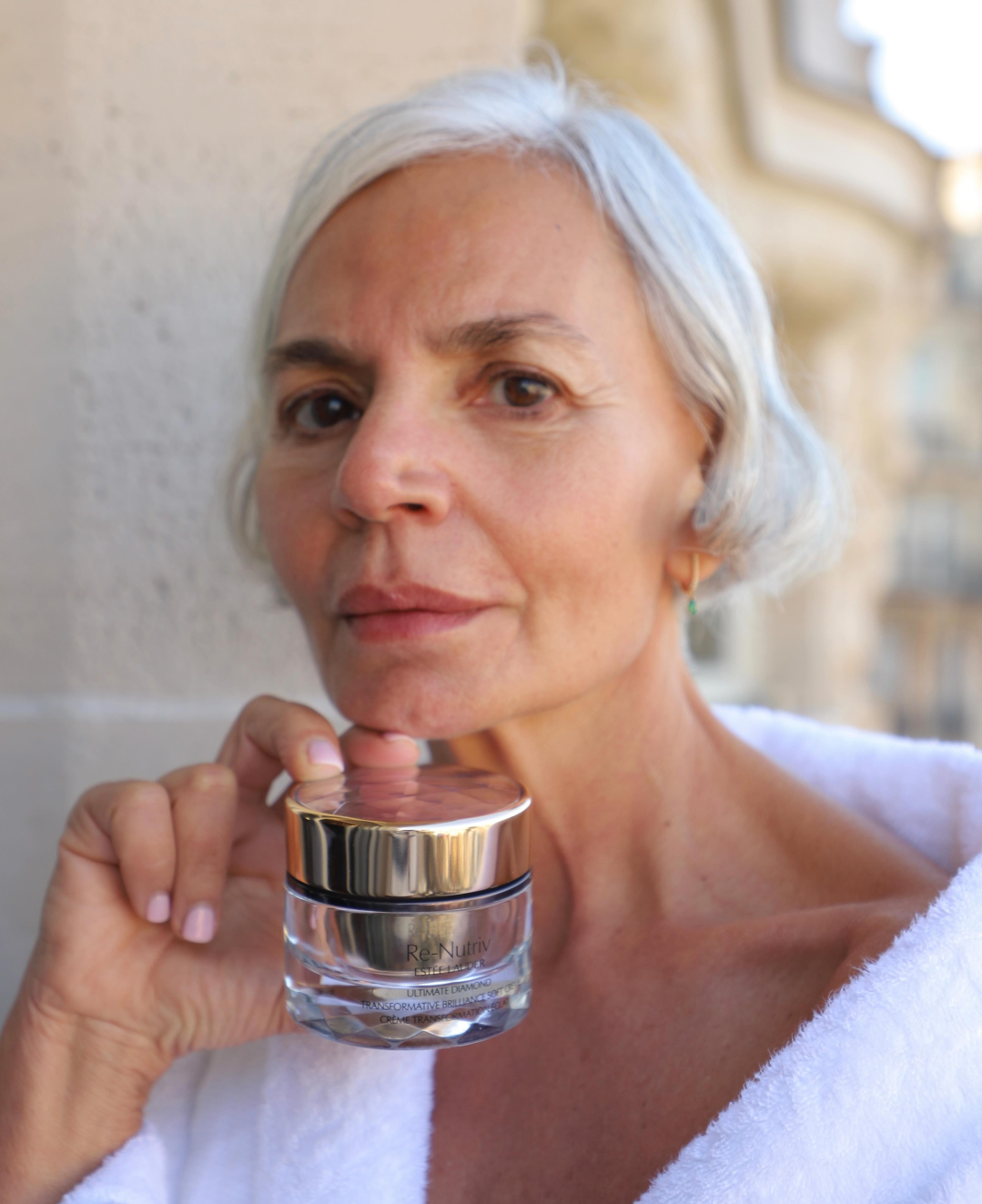
How and when you apply the product also makes a big difference:
1. Start slow. "When starting a new face cream, I recommend that you start with three nights a week," says Imahiyerobo-Ip. "Apply a pea-size amount of the cream to your entire face. Usually I recommend that my patients do a Monday, Wednesday, Friday evening application for two weeks and then try to work up to nightly. If the creams are irritating, don't push it. I also advise that you avoid other irritating products when starting a new face cream. You don't want to use a strong AHA or BHA cleanser at the same time, and you want to avoid harsh physical exfoliants like scrubs."
2. Use different products at different times of the day. "I recommend using different products in morning and night so that you can stimulate collagen and prevent damage by using different mechanisms, like an antioxidant in the morning and a retinoid at night or a peptide product in the morning and an AlphaRet at night or a discoloration product in the morning and a collagen-stimulating product at night," Gmyrek says. "Use them at different times of day—morning and night as opposed to layering them, which might cause them to be inactive, give a contact dermatitis, or limit the penetration of the second product."
3. It's never too early to start. Del Campo recommends people start using an anti-aging cream when collagen production starts to decrease, which is in the mid-to-late 20s: "It's not just about correction—it's about prevention."
4. Don't layer with reckless abandon. "I see on social media and print everywhere that you should layer multiple products to get all the benefits, but what I want people to understand is that these active ingredients—retinoids, vitamin C, polyphenols, peptides, etc.—are all very unstable and must be formulated and stored in proper packaging," Gmyrek says. "If they are exposed to light or air, they will denature and become inactive. So if you layer them, they may also (likely) become inactive and ineffective! Also, they are tested as a single product on the skin. If you hope to achieve the results promised by the company, use them as directed, as a single product." Unless an anti-aging product comes as a multiple-step program, she recommends not combining products. Sunscreen and makeup aren't included in this, though.
5. Sunscreen is important. Jackson says the best anti-aging cream is sunscreen. "Start early and reap the benefits," she recommends. "By the time you see the issue, you are in corrective mode rather than the preventative mode."
6. Use products regularly. You need to keep at it in order to see the benefits. Gmyrek says, no matter the product, to see results, you need to use it for 12 to 16 weeks, which is the amount of time it takes to build collagen. You may see the hydrating and brightening effects sooner, though.
7. Vary products if you need to. You might need to vary your products based on your needs and seasonal changes. But Del Campo says if you like a particular product and it works for you, stick to it. You don't want to fix something that's not broken.
The Best Anti-Aging Creams
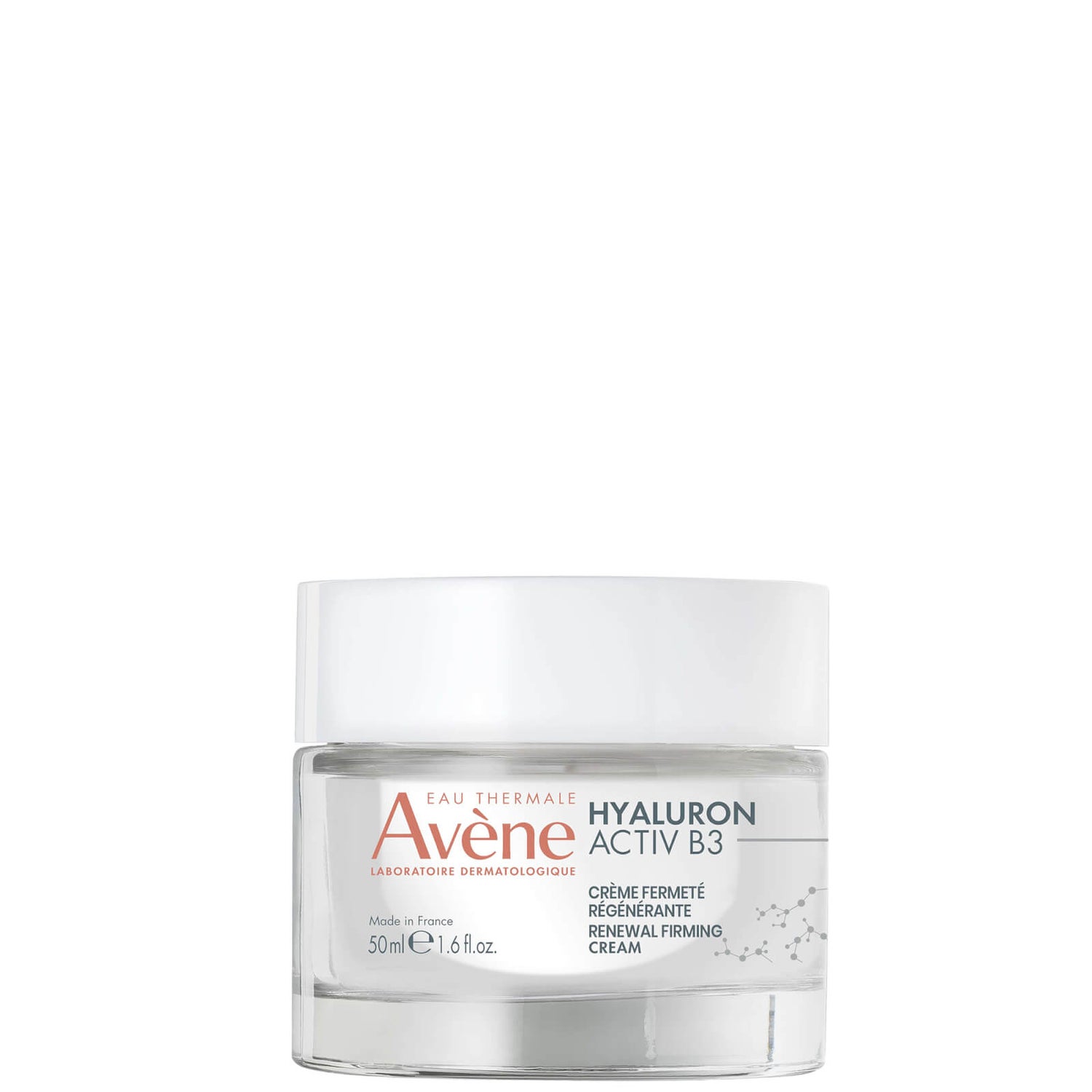
"This hydrating cream can be used one to two times daily and combines 6% niacinamide, hyaluronic acid, and Avène thermal spring water to boost hydration while soothing the skin. It works to plump and firm the skin, and I love that it can be easily applied to the face, neck, and chest." — Garshick
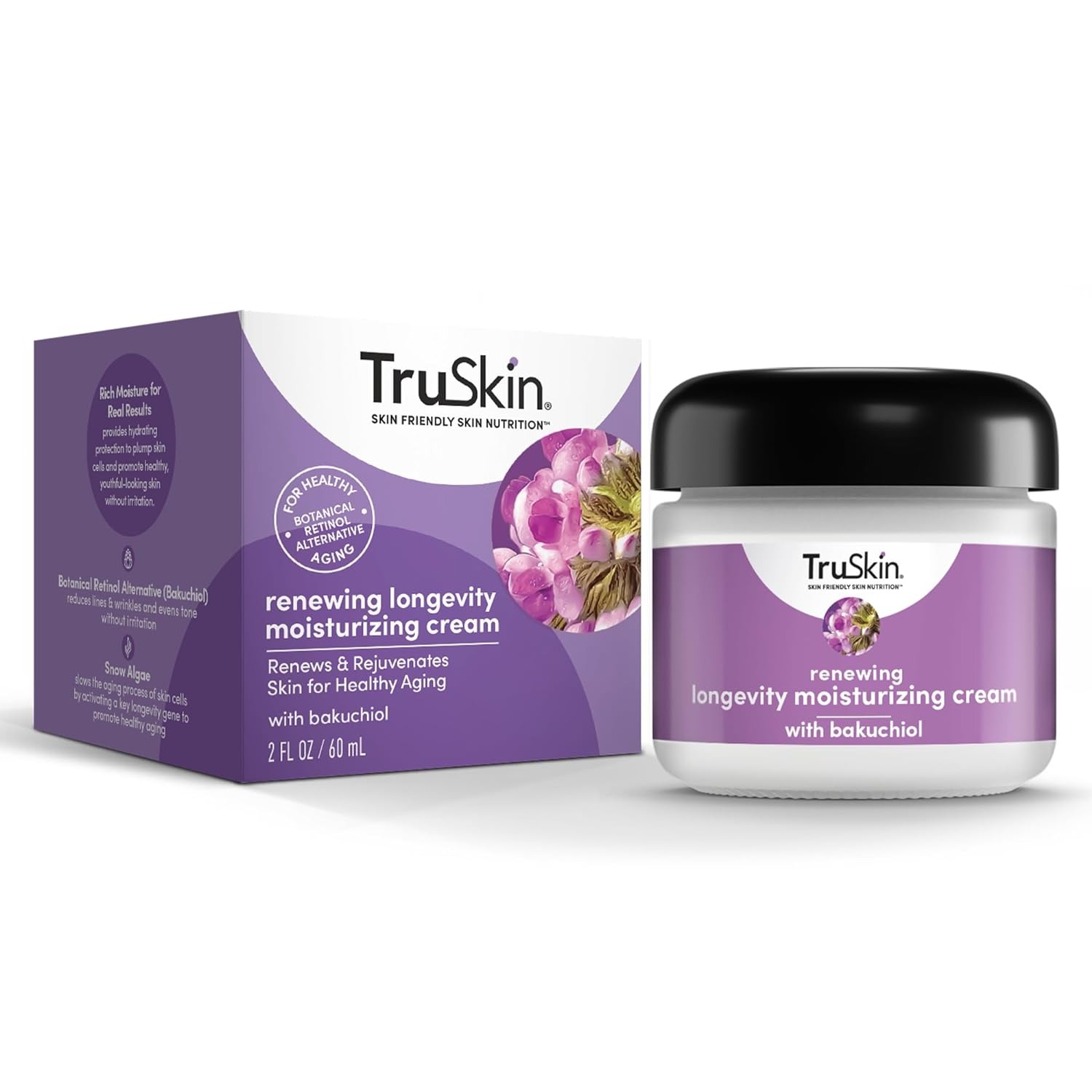
"Incorporating a blend of bakuchiol and snow algae, this cream improves overall texture and tone, including fine lines and wrinkles, without irritating the skin. I especially love this as an option for those with sensitive skin, as it hydrates the skin. It is best to use after cleansing prior to moisturizing and can be used morning or night." — Garshick
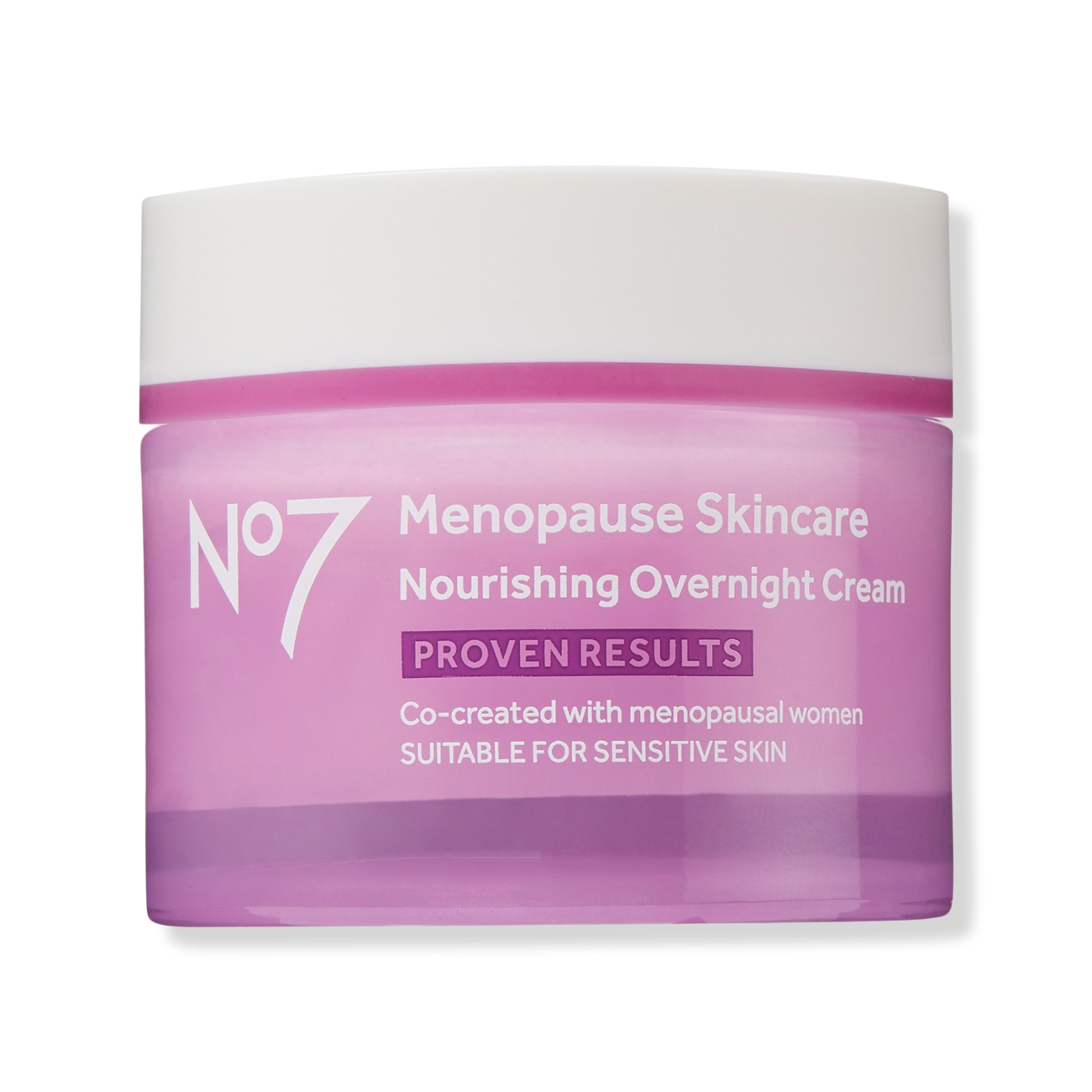
"This hydrating overnight cream helps to moisturize the skin and uses ceramides and lipids to help support the skin barrier, helping to replenish moisture for those dealing with dry and sensitive menopausal skin. It can be used by all skin types and also contains soy isoflavones, hyaluronic acid, and Matrixyl 3000 to help plump and repair the skin overnight, leaving the skin looking plumper and firmer." — Garshick
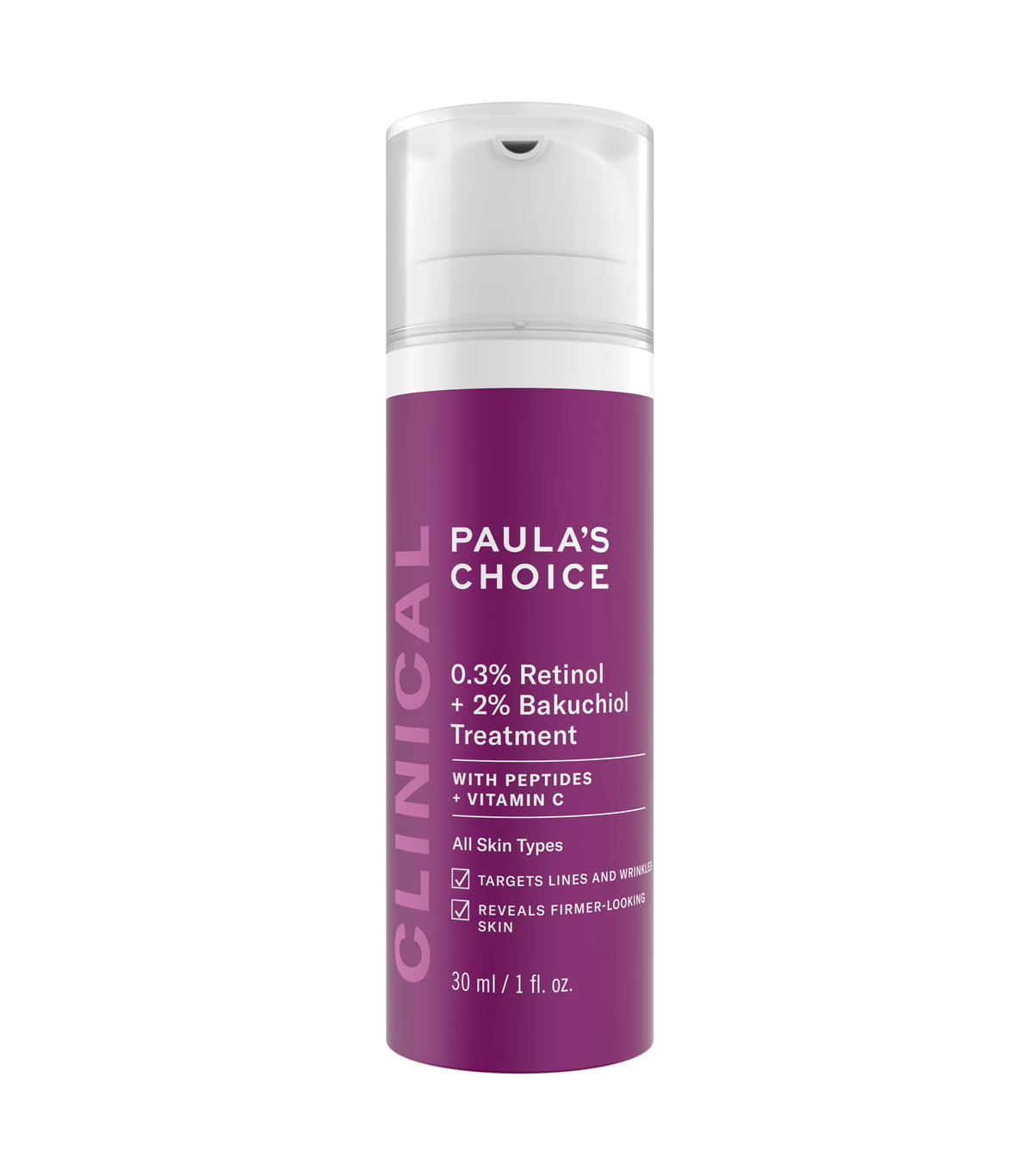
"It contains retinoid (vitamin A), bakuchiol (not a retinoid but acts on the retinoid receptors in a similar way to produce collagen and is less irritating), vitamin C (antioxidant), and palmitoyl oligopeptide (peptide), which is listed fairly high on the ingredient list. This product also contains glycerin and ceramides, which are moisturizing and hydrating to the skin," Gmyrek says.
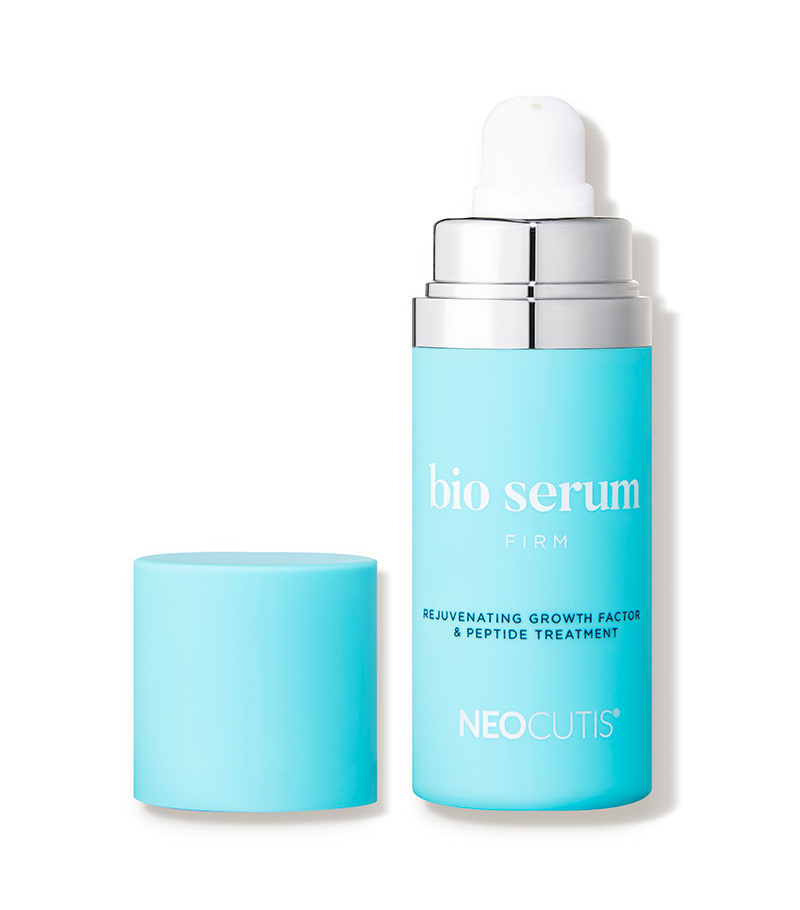
This serum is Del Campo's favorite and her personal go-to. "It's gentle yet the most effective and complete anti-aging product on the market," she explains. "It has the highest dose of human-derived growth factors and peptides (for thickening and tightening skin)."
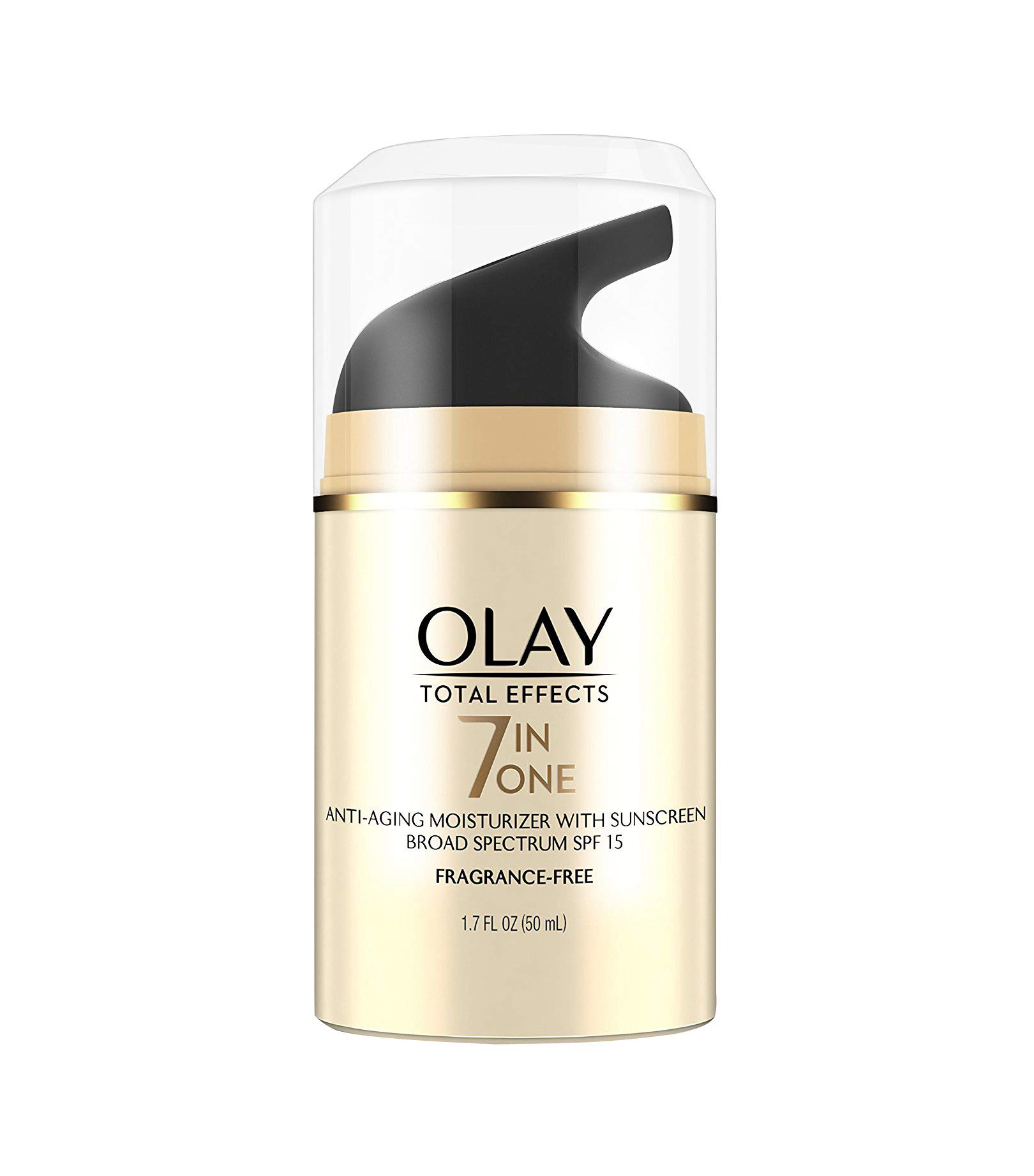
Jackson likes that this formula contains antioxidants like vitamin E and green tea extract to fight surface free radicals. It targets fine lines and wrinkles, age spots, and uneven tone and texture. The broad-spectrum SPF 15 protects against sun damage and harmful UV rays.
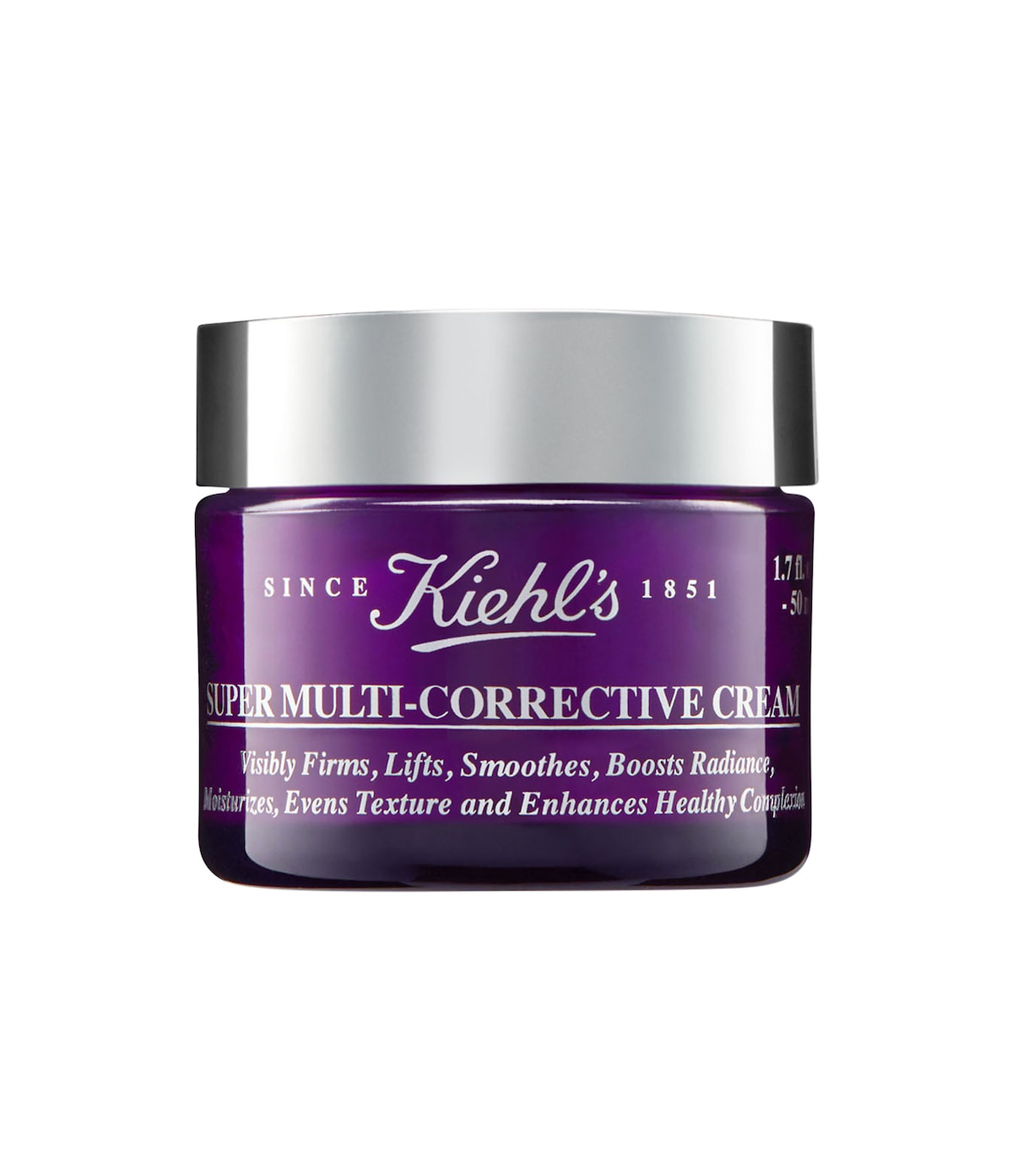
I like using this hydrating cream on my skin in the morning along with sunscreen. It absorbs quickly and doesn't feel too heavy. It has vitamin A to reduce the appearance of wrinkles, Chaga mushroom to even skin tone, and hyaluronic acid to lock in moisture.
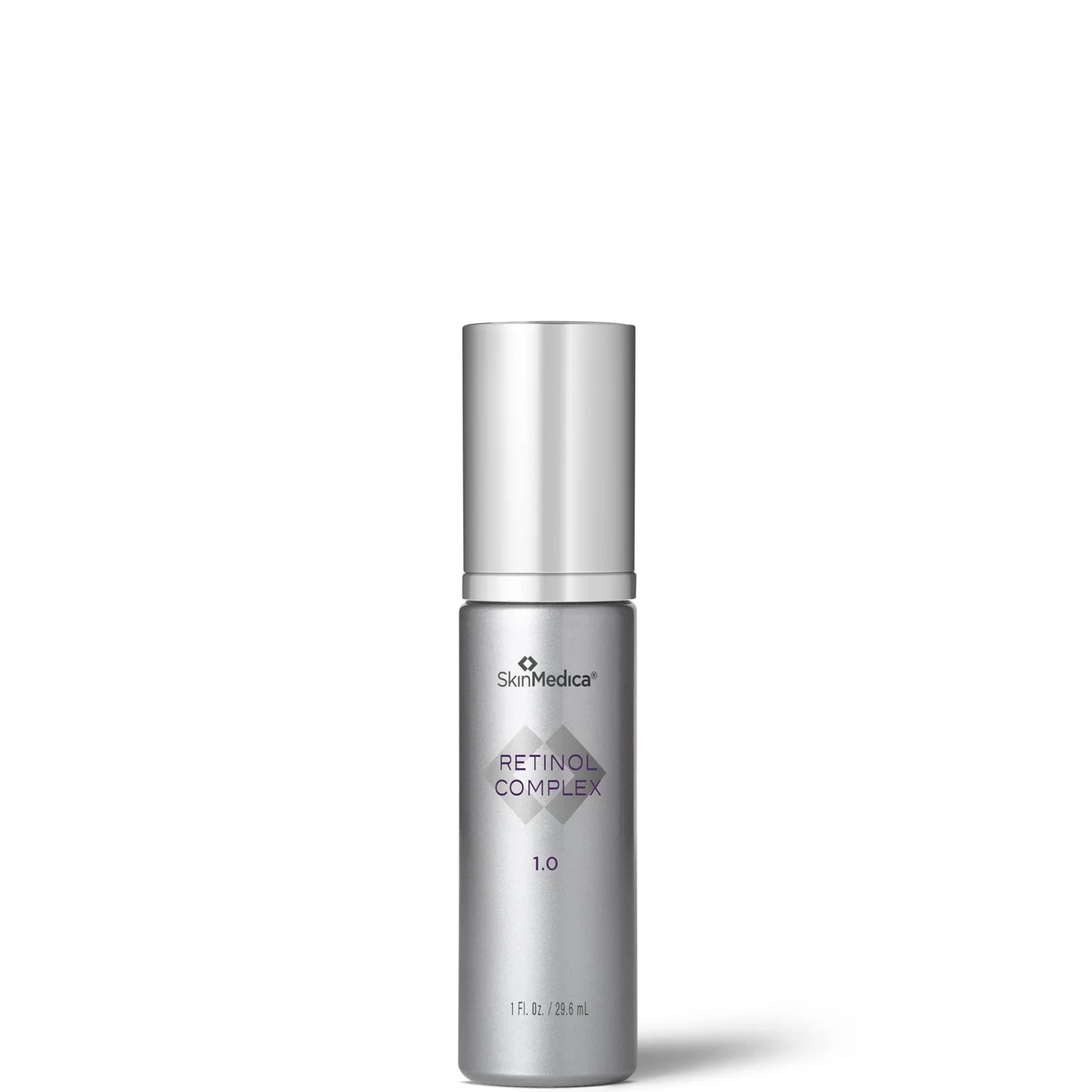
It comes in two strengths: 0.5 and 1.0. "Retinol stimulates new collagen, but this product also includes niacinamide to enhance collagen stimulation and calm and hydrate the skin, ceramide to repair the skin barrier and hold in moisture, and peptides and vitamin E to provide antioxidant benefits. Start with the 0.5 and work your way up to the 1%," Gmyrek says.
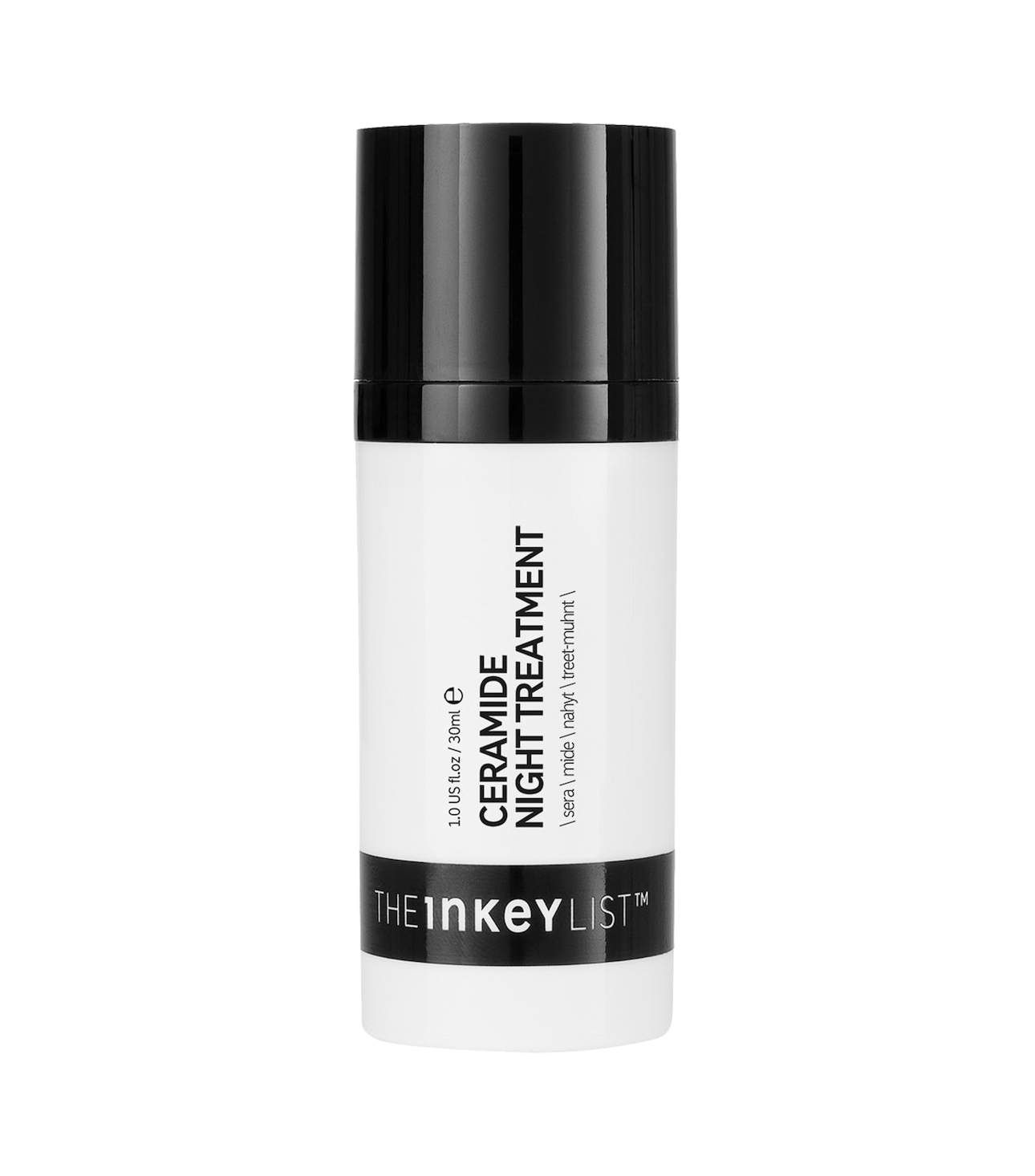
"Ceramides are lipids naturally found in the skin, and their presence in face creams means added skin barrier support. Making sure the skin barrier is healthy and functioning optimally is another secret to making sure the skin stays glowy and supple," beauty writer Courtney Higgs explains. "I love applying this hydrating ceramide cream as the final step in my evening skincare routine to make sure I'm sealing in as much moisture as possible to help my skin stay bouncy and youthful."
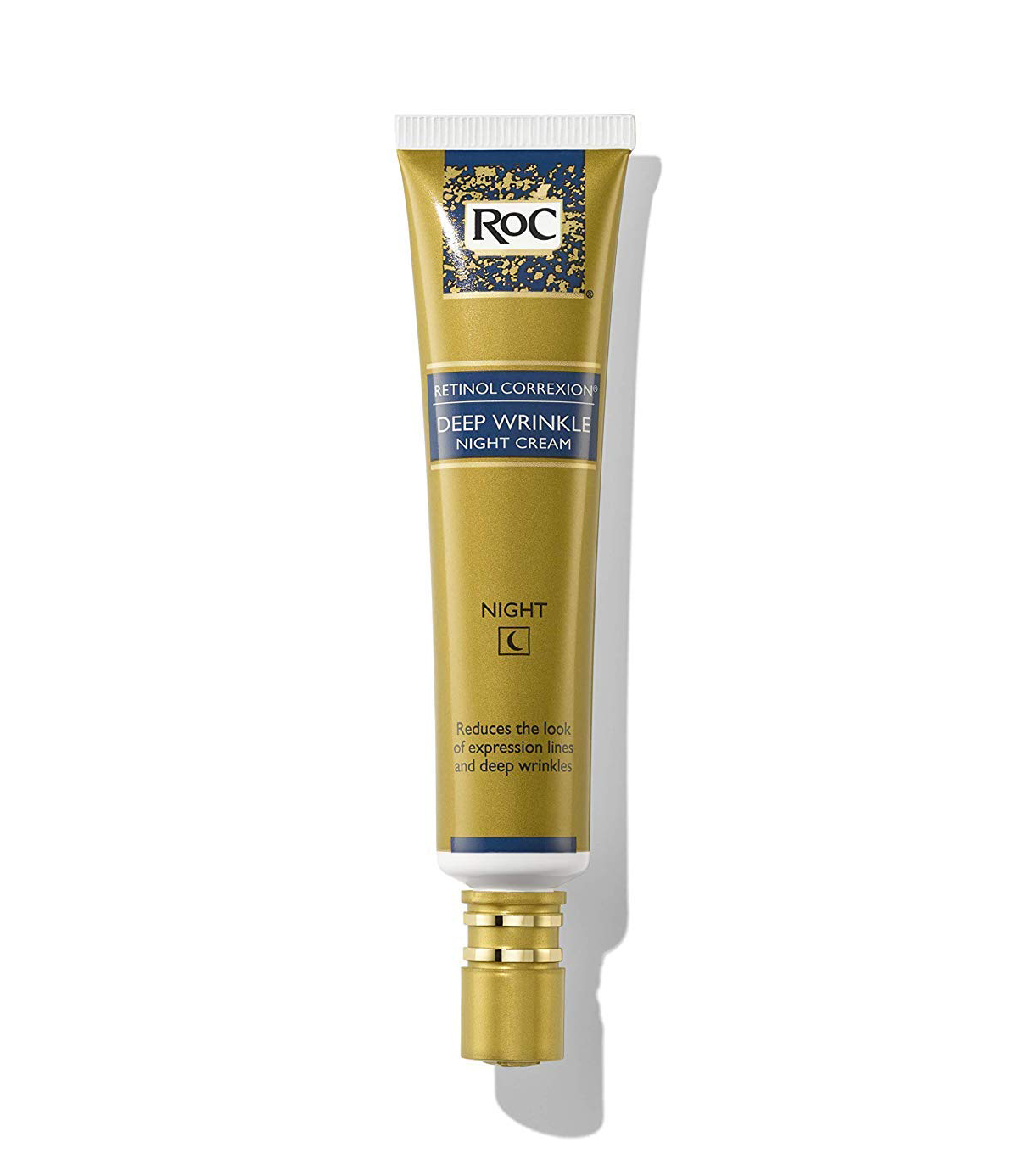
"I have been recommending this for years," Gmyrek says. "It is a cost-effective option that provides retinol to stimulate collagen and elastic tissue. It also contains glycolic acid, citric acid, and vitamin C to exfoliate, brighten, enhance collagen production, and provide antioxidant benefits. Dimethicone, glycerin, and shea butter hydrate and moisturize."
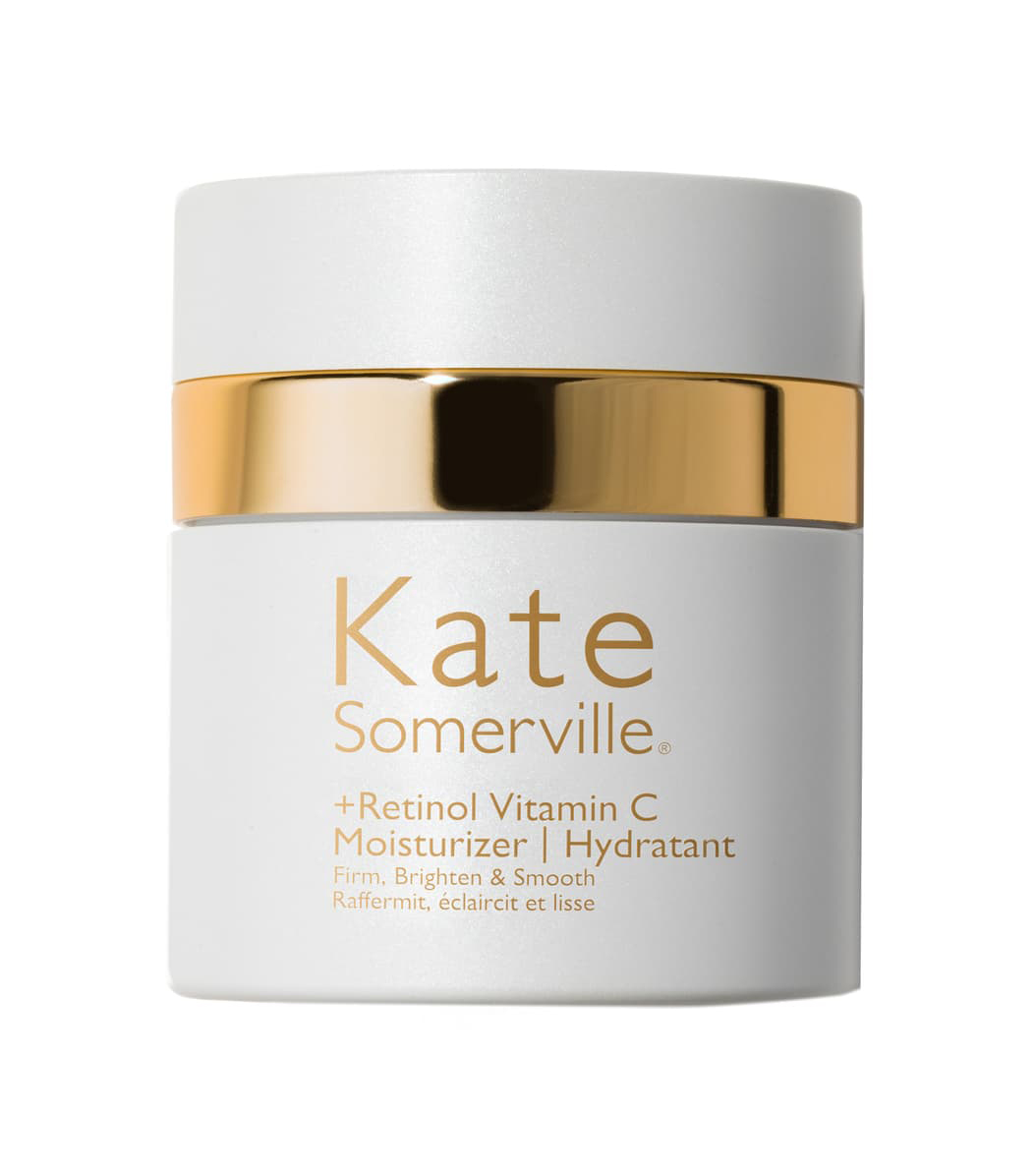
I use this moisturizer every night, and I love that I can still get my retinol fix without experiencing any irritation on my sometimes sensitive skin. Gmyrek also recommends this product: "It has two great ingredients, and as opposed to layering two products—which could alter, dilute, or inactivate them—this product stabilizes them, and it is lightweight but moisturizing. It also contains dimethicone and hyaluronic acid to hydrate the skin and tocopherol (vitamin E) to provide further antioxidant benefits."
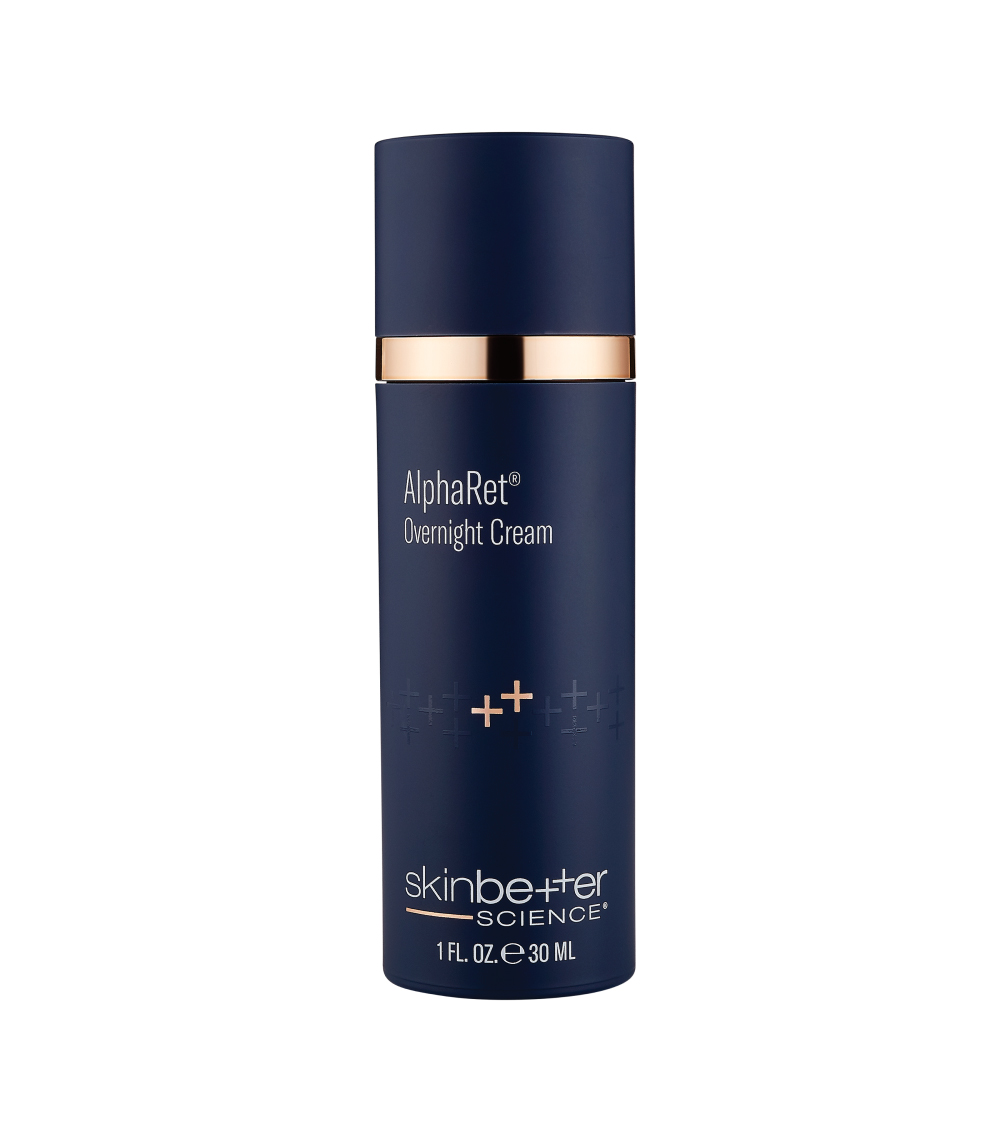
"It contains a retinol, which is, in the company's studies, equivalent to a prescription-strength retinoid but less irritating," Gmyrek explains. "It also contains alpha hydroxy acid—which exfoliates dead skin cells, brightens skin, and stimulates new collagen—as well as a blend of antioxidants to fight free radicals, which destroy the collagen and elastic tissue. It is lightweight and soaks in quickly. Lactic acid helps with overnight hydration."
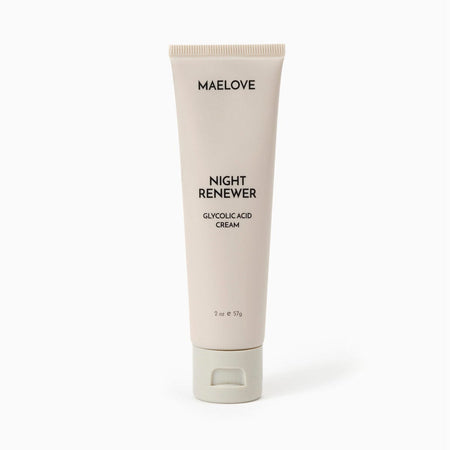
"This cream works to moisturize and gently exfoliate, as it contains 10% glycolic acid to help eliminate dead skin cells as well as soothing ingredients like vitamin E, squalane, shea butter, arnica flower, and aloe to calm the skin while also incorporating hyaluronic acid to hydrate the skin. Taken together, it is a great option especially for those with sensitive skin." — Garshick
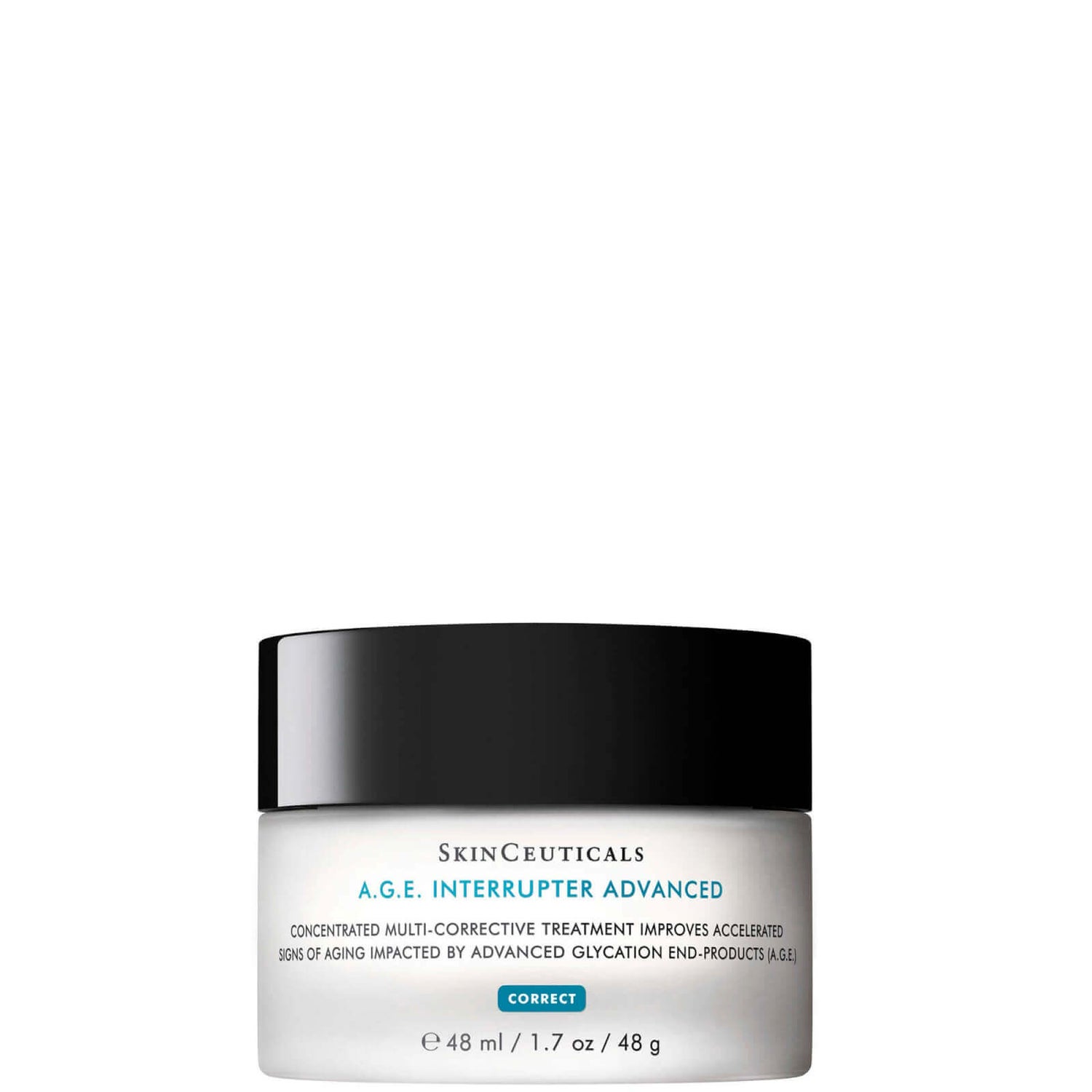
"Targeting fine lines, deeper wrinkles, and skin aging, this cream targets the effects of glycation, using 18% concentrated Proxylane, 4.25% wild fruit flavonoid blend of blueberry and pomegranate extracts, and 0.1% glycyrrhetinic acid. It hydrates the skin and is free of parabens and drying alcohols, so it won't leave the skin feeling irritated." — Garshick
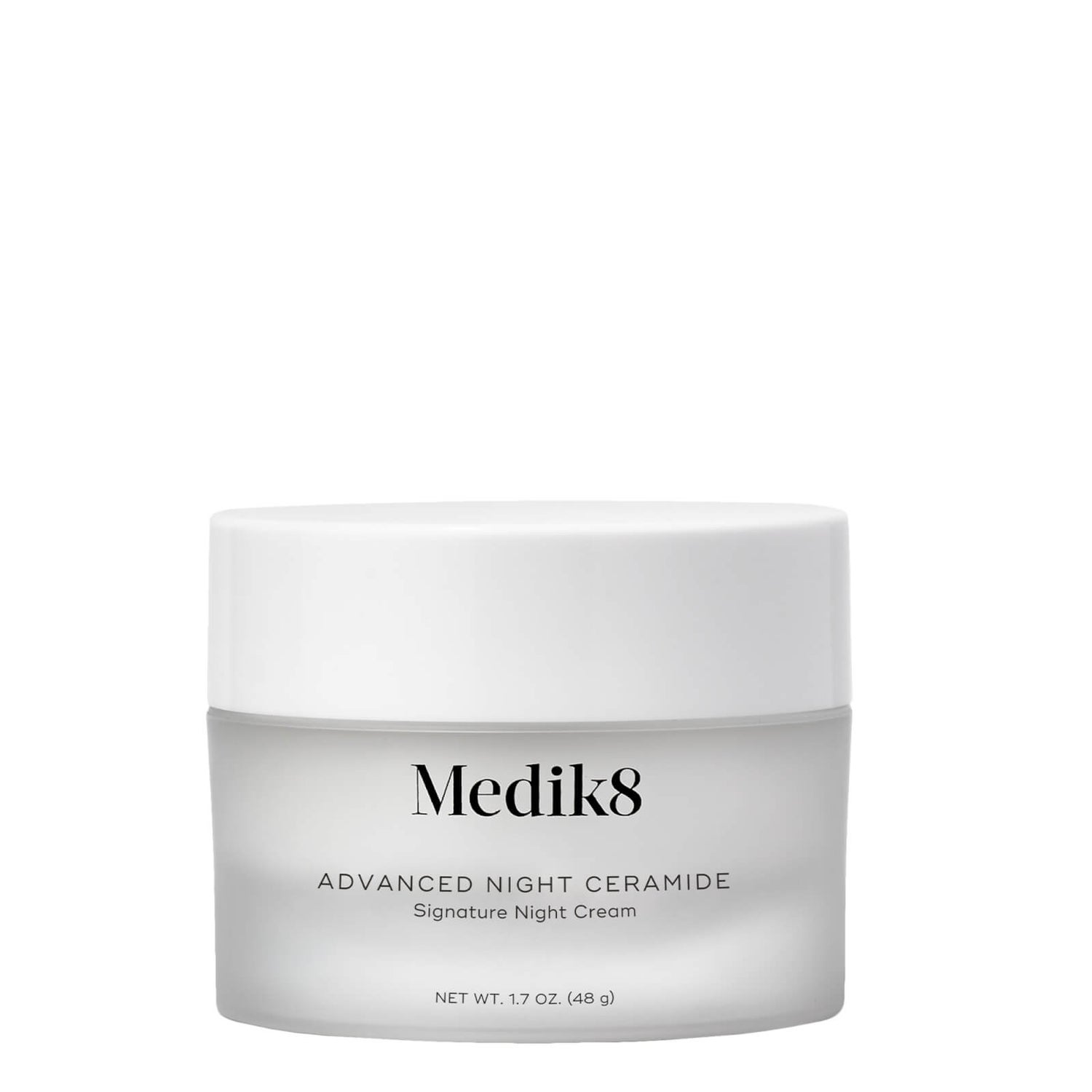
"Helping to support the skin barrier, this anti-aging cream incorporates ceramides in addition to antioxidants. I love that it improves the appearance of fine lines and wrinkles without irritating the skin. It can be applied after a retinoid to improve overall firming of the skin." — Garshick
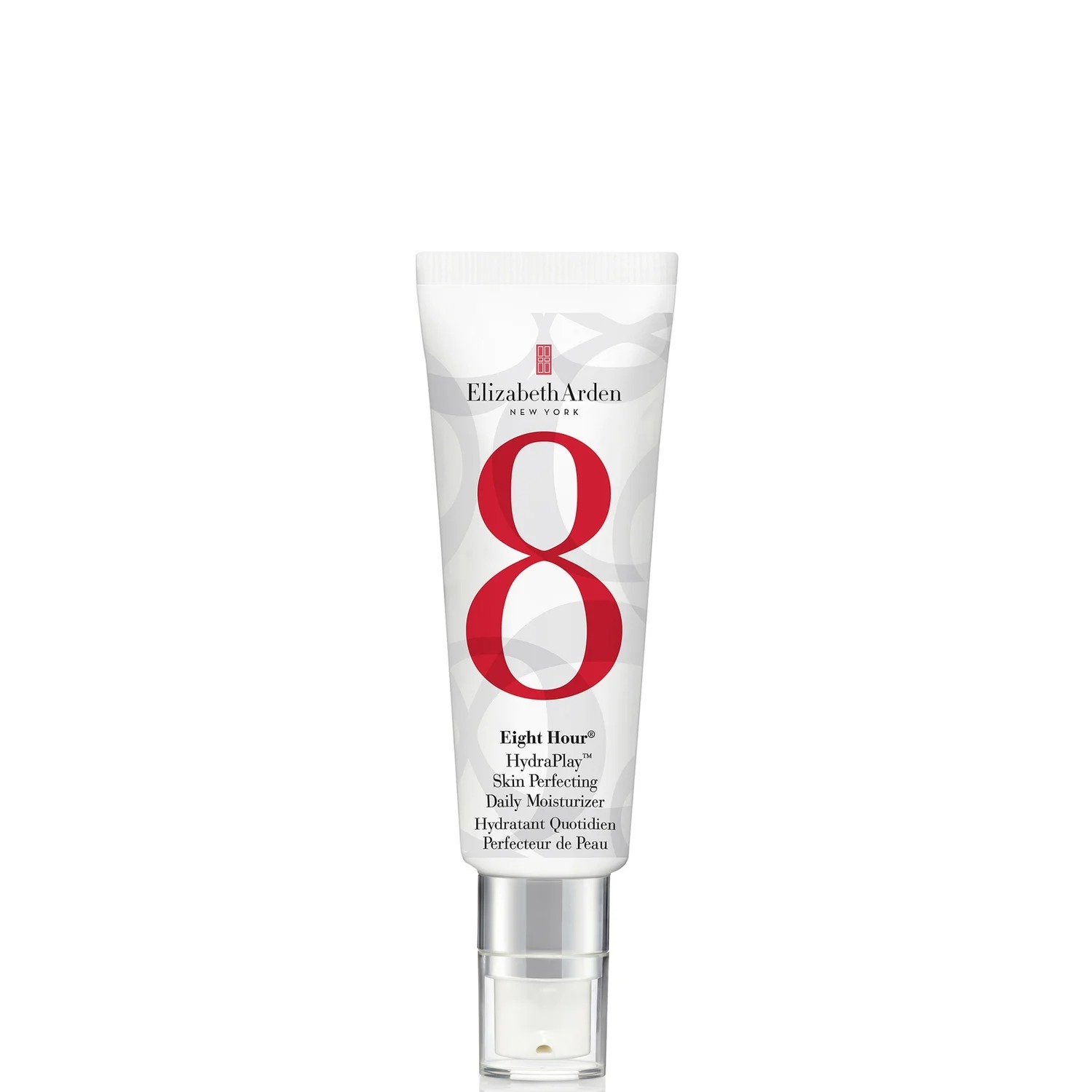
This Elizabeth Arden moisturizer instantly plumps, hydrates, brightens, and controls excess oil. It contains hydrating superstars like glycerin, hyaluronic acid, and squalane to lock in moisture all day and leave the skin looking extra youthful.
Sarah is lifestyle writer and editor with over 10 years of experience covering health and wellness, interior design, food, beauty, and tech. Born and raised in Los Angeles, she attended New York University and lived in New York for 12 years before returning to L.A. in 2019. In addition to her work at Who What Wear, she held editor roles at Apartment Therapy, Real Simple, House Beautiful, Elle Decor, and The Bump (sister site of The Knot). She has a passion for health and wellness, but she especially loves writing about mental health. Her self-care routine consists of five things: a good workout, “me” time on the regular, an intriguing book/podcast/playlist to unwind after a long day, naps, and decorating her home.
